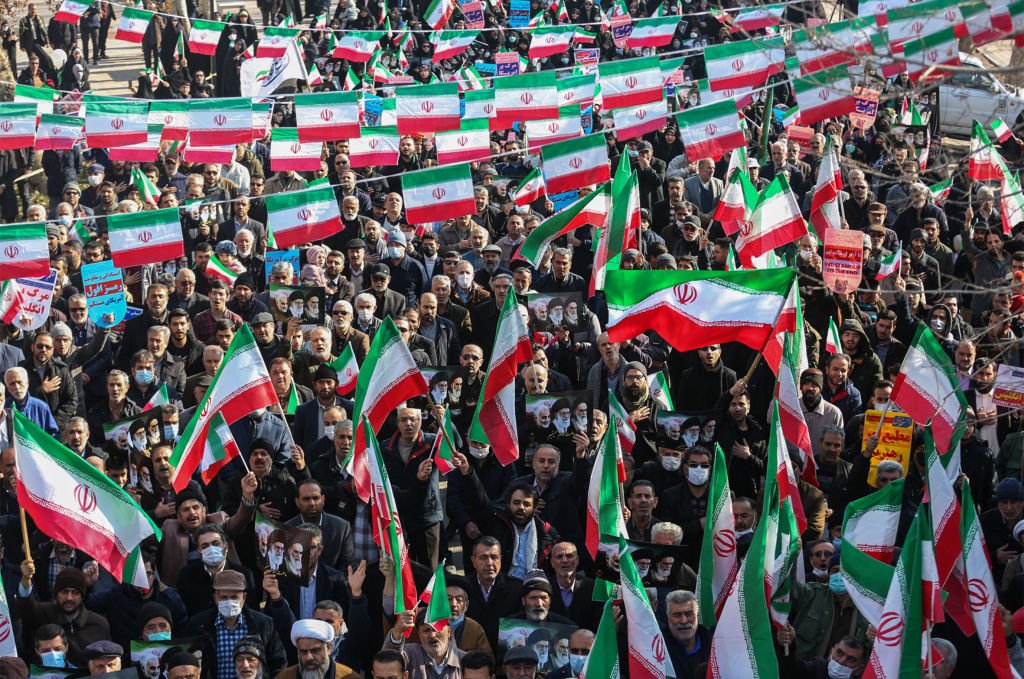
General update
On 20th May 2024, Iranian media confirmed that President Ebrahim Raisi, Foreign Minister Amir Abdollahian and several other government officials were killed in a helicopter crash in Iran’s East Azerbaijan province. The impact on freedom of expression and freedom of assembly in Iran is a particular issue of concern, given recent protests in the country.
Expression
On 14th January 2024, women journalists Niloofar Hamedi and Elahe Mohammadi who were sentenced to 13 and 12 years in prison respectively for reporting on Mahsa/Jina Amini’s death, were freed on bail two days after their appeal trials, pending a decision on their appeal. As previously documented, the two were arrested in September 2022 after they reported on Mahsa/Jina Amini’s death days after she was violently arrested by Iran’s “morality” police, sparking the “Woman Life Freedom” protests of September-December 2022. They went on trial in July 2023 on charges of “propaganda against the system and conspiracy to act against national security” and were eventually sentenced in October 2023.
Upon their release, it was reported that Hamedi and Mohammadi were facing new charges for not wearing a hijab after photos of them embracing and celebrating their release were widely circulated on social media. Three months later, with the convictions and looming imprisonment pending their appeal decision, Hamedi resumed work at the Shargh Daily newspaper while Mohammadi refrained from her journalism work in the meantime.
Furthermore, on 23rd May 2024, GCHR reported that two Iranian musicians had been sentenced over songs they created during protests in the wake of the death of woman human rights defender Mahsa Amini. Alarmingly, one of them has been sentenced to death, and recent reports allege he has been tortured in prison. On 24th April 2024 Iranian authorities convicted rapper Toomaj Salehi for a song he wrote, and sentenced him to death on a charge of “corruption on earth.” The 33-year-old musician faces execution for expressing support for women’s rights, particularly in the wake of the Mahsa Amini protests. Salehi is known for using his music to criticise the Iranian authorities, such as ‘Mouse Hole’, ‘Turkmenchay’ and ‘Pomegranate’, which highlight issues like corruption, poverty and state executions.
He won the Index on Censorship’s Freedom of Expression Award in the arts category in 2023, and Index on Censorship has joined Salehi’s family and filed an appeal with two United Nations Special Rapporteurs against the death sentence. Over 100 musicians, artists and cultural figures called for his release on 10th May 2024.
What is particularly shocking is that Salehi was first arrested in October 2022 and sentenced to six years in prison in the same case, but in November 2023, Iran’s Supreme Court struck down the sentence, released him on bail, and referred him back to the Court of First Instance.
While he was out on bail, he published a video on his YouTube page describing the torture he faced while in detention, including beatings resulting in fractures, and solitary confinement. According to Amnesty International, “He said agents injected him with an unidentified substance in his neck and subjected him to psychological torture, including solitary confinement for eight [or] nine months.”
In a separate case, Iranian singer-songwriter Shervin Hajipour was sentenced to over three years in prison on 1st March 2024, over allegations of creating a protest anthem for Mahsa Amini that authorities deemed as “inciting people to riot,” a charge he contests as unjust. Amid the 2022 protests sparked by the death of Amini, Hajipour debuted a song titled "Baraye" which became an anthem of the protests. For this track, he earned the Special Merit Award for Best Song for Social Change at the 2023 Grammys.
Association
Since the beginning of the protests, the Iranian authorities have continued to wage a campaign of oppression against women and girls in their efforts to enforce Iran’s discriminatory compulsory veiling laws. Indeed, in recent weeks, Iranian authorities are reported to have intensified their aggressive enforcement of compulsory veiling with the implementation of a new nationwide campaign called the “Noor (light) Plan” and a visible increase in security patrols in public spaces enforcing compulsory veiling through surveillance of women’s hair, bodies and attire.